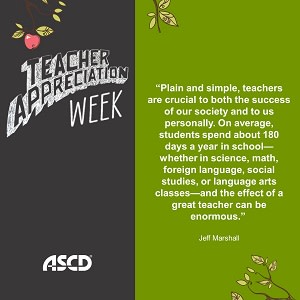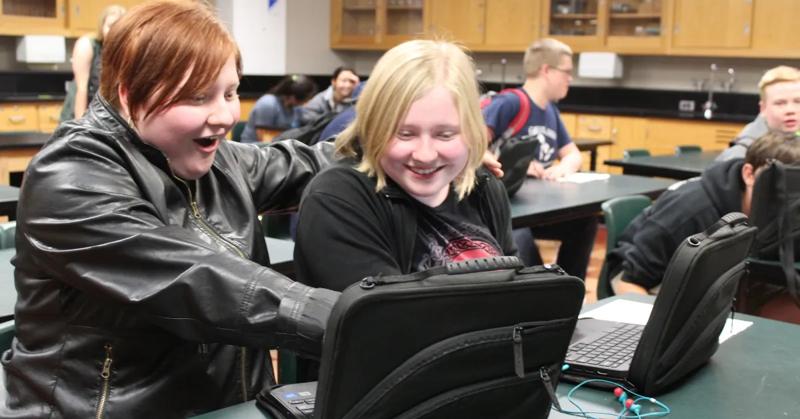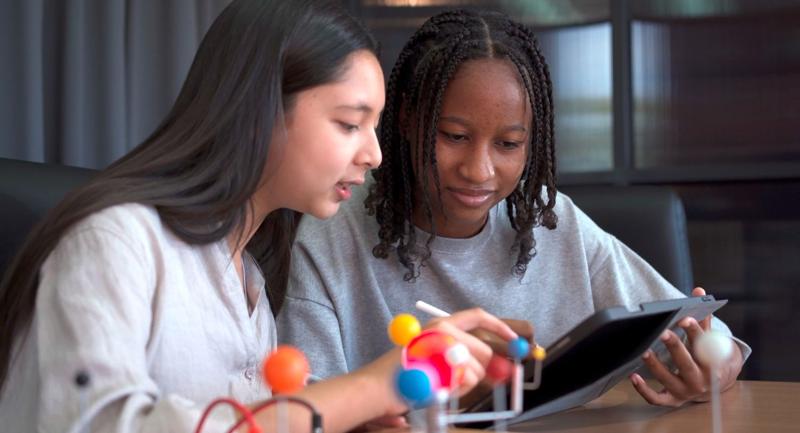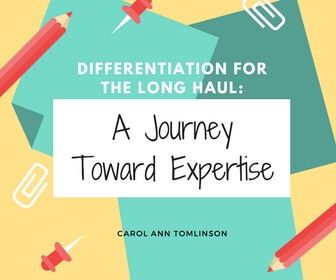
Plain and simple, teachers are crucial to both the success of our society and to us personally. On average, students spend about 180 days a year in school—whether in science, math, foreign language, social studies, or language arts classes—and the effect of a great teacher can be enormous. Under the proper guidance, these classes can be filled with challenge, inspiration, success, and engagement. Under less successful leadership, these classes can become nothing more than mandates that must be endured—often with minimal success.
So, what is the difference? Why do some classrooms thrive while others struggle? My newly released ASCD book, The Highly Effective Teacher: 7 Classroom-Tested Practices that Foster Student Success, provides clear guidance on what highly effective teachers do differently. Specifically, the book provides rich insight into how to begin the necessary transformation to more highly effective teaching. Highly effective teachers teach with purpose, focus, and intentionality. They do more than “cover” information and standards and they do more than teach as if the test is all that matters. Instead, they challenge thinking and create a culture where lifelong learning and success for all students is the goal. To challenge your current practice and thinking, consider the techniques of effective teachers shared below.
Tip 5 from my book—“Interactive, Thoughtful Learning”—focuses on improving the degree to which teachers promote a culture of rich interactivity and facilitate thoughtful, purposeful student engagement. To improve the depth of engagement, teachers must make content and activities purposeful and relevant to our students. Topics such as the First Amendment or the global issue of insufficient clean water become powerful when students can see the immediate effect the topics have on them. For instance, students begin to see the importance of the First Amendment when they are presented with a potential bill that could stop them from talking in public until they are 18 years old.
Further, teachers need to get in the habit of constructing and asking more engaging questions. “What were the causes of the Civil War?”—a typical type of question asked in a social studies classroom—does not have the potential to engage students as well as questions like “Is war ever justified? Explain.” or “What is worth disagreeing or fighting over?” Ultimately, teachers still get to the content or skills they want to achieve, but the route is different—it’s more engaging, more purposeful, and linked to something important to students.
Finally, if teachers can move their students away from self-centered learning to idea-centered learning, they can create a more collaborative learning environment. Self-centered or egocentric learning basically tells students to solve or answer a question and then check for correctness. Idea-centered learning requires students to look deeper into their responses and the responses of their peers. When solving a math problem, this may mean having students work with someone who has a different solution. The goal would be to collectively figure out the better solution and understand where the other student made her mistake.
Highly effective teachers are part archaeologist, part homebuilder, and part astronaut. As archaeologists, teachers unearth the hidden greatness in all their students; as homebuilders, they develop self-confidence and perseverance in their students and create a foundation that encourages students to tackle what previously seemed insurmountable; and as astronauts, they guide journeys to places otherwise thought impossible.
Click here for some inspiring free ASCD resources for teachers in honor of Teacher Appreciation Week.





